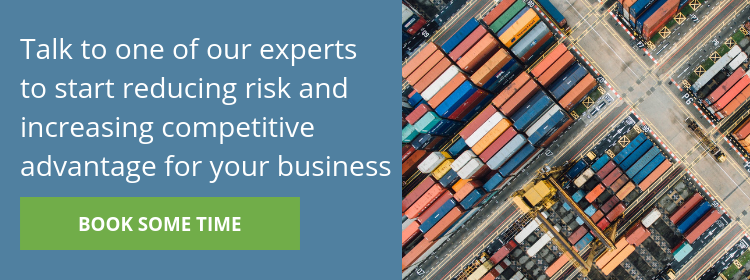Just when you thought the shipping markets couldn't get any more twitchy (and we've seen some distinct twitchiness across bulk, bunkers and tankers), along comes another external impact. While trade wars can be worked around, occasionally to one's advantage, this time its serious, and here's why:
1. Scale
You only have to speak to the banking sector to understand that running afoul of sanctions legislation will ruin most people's day (BNP Paribas' USD 8.9bn fine, Standard Chartered and Société Générale each being fined USD 1bn, etc), but shipping has, to a large extent, avoided large-scale action. The most recent example, PB Tankers SpA, only owned seven ships. The companies impacted by the US Government's latest action, the COSCO group companies COSCO Shipping Tanker (Dalian) Co., Ltd and COSCO Shipping Tanker (Dalian) Seaman and Ship Management Co., Ltd., and the unrelated Kunlun Holding Co,. Ltd, Kunlun Shipping Co., Ltd, Pegasus 88 Ltd and China Concord Petroleum Co., are reported to collectively own and operate closer to 100 tankers, many of which are regularly employed by oil majors and major trading houses. While PB Tankers SpA fought, cleared itself, and ultimately filed for bankruptcy, the markets barely missed a beat. Since the announcement of sanctions against the above-named companies, day rates in certain sections of the tanker markets increased by over 60% as traders avoided vessels potentially caught up in the sanctions move, and sought alternative tonnage.
2. Complexity
The sanctions notice named six key companies and five individuals, the names of which are easy to check on compliance databases. However, with no specific vessels named to date, compliance officers face a massive task in establishing their exposure to companies and individuals that are indirectly impacted. This includes any company, any where, owned 50% or more by the sanctioned entities, or where the individuals/companies involved could be involved in the trade concerned. Our research suggests that COSCO Shipping Tanker (Dalian) Co., Ltd alone can be linked to 43 companies, which in turn control 72 traceable vessels, including VLCCs, Suezmaxes, LR2 Aframaxes, LR1/Panamax, MR2, LPG and LNG carriers.
While the US Government has made it clear that "Sanctions do not apply to.... China COSCO Shipping Corporation Ltd. (COSCO)..or...COSCO’s other subsidiaries or affiliates (e.g., COSCO Shipping Holdings), provided that such entities are not owned 50 percent or more in the aggregate by one or more blocked persons", this places pressure on compliance officers to establish the full ownership structures of any COSCO group company they are dealing with, with some preferring to adopt a very cautious approach. COSCO Shipping Tanker (Dalian) Co., Ltd's parent COSCO Shipping Energy Transportation Co., Ltd appearing to be particularly impacted by this, briefly suspending the trading of its shares as it sought to manage the fall-out from the sanctions enforcement, despite not being directly named. While the COSCO and Kunlun groups are completely separate, and have very different characteristics, both present the "usual" complexity offered by shipping and trading groups, with multiple onshore and offshore-registered special purpose vehicles, intermediate holding companies and a level of opacity. These structures take time to understand. Speaking of which...
3. Timing
Whether by luck or judgement, the US Government managed to launch its sanctions on 25 September 2019, two working days before China's Golden Week celebrations, meaning that key individuals, company registries and local legal advisors are suddenly hard to find. When combined with the complexity mentioned above, you have a short-term, and painful, information gathering and validation problem on your hands.
4. Aftershocks
The scale of this action is different, and takes place at a time when US/China relations are fraught. What happens next? We have a potentially short-term uptick in tanker rates - great for those owners hanging on for the expected IMO2020 improvement in the market, but what about those who have major exposure to the sanctioned companies? These include, but are not limited to, bunker suppliers, ship owners, charterers/cargo owners, ship finance providers, insurers and co-investors. There is clearly a sanctions risk here, but what about credit risk? Will China support the impacted companies until they are cleared? What might China do next, particularly in the context of its ongoing trade negotiations with the United States?
We now have an inevitably "compliance-hungry" environment that requires a thorough understanding of the exposures, risks and consequences of failing to meet today's requirements. Infospectrum has been appointed on a number of occasions to leverage its expertise and global contacts to perform more in-depth sanctions-related due diligence. Such diligence takes more time than an automated "name check", but that's part of the reason we exist - ensuring companies are who they say they are, and do what they say they are doing.
If you are interested in discovering how our expertise can support your organisation with compliance, credit reporting, and risk management, click the button below to get in touch.


